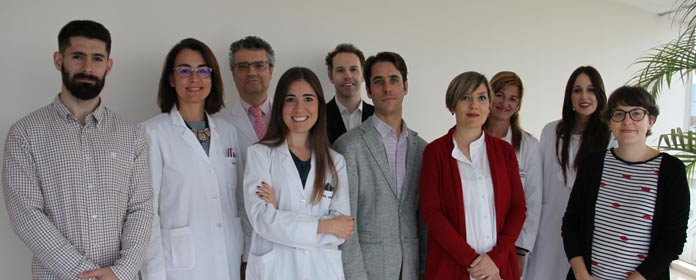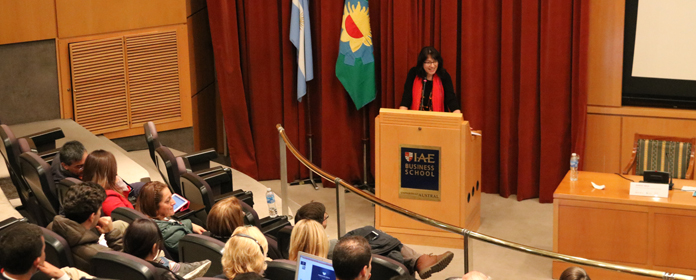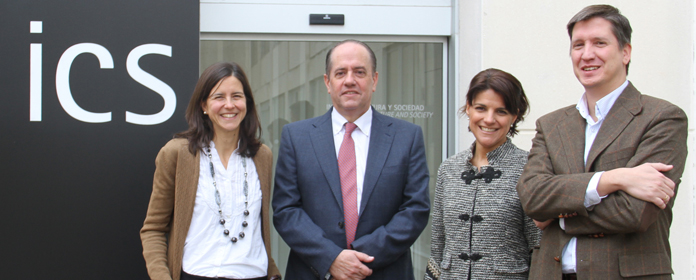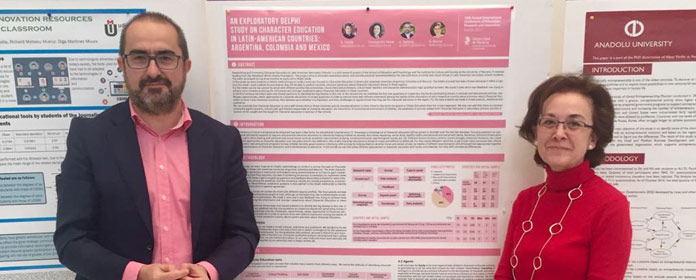International experts call for the Education in values to promote the development of society.
150 experts from Europe, Latin America and the U.S. debated at an international congress organized by the University of Navarra at partnership with the Austral University and with the support of the Templeton World Charity Foundation.
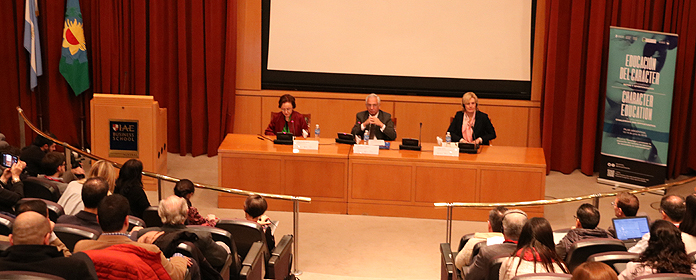
PHOTO: Courtesy
Prioritizing Education in values in schools is fundamental to promote development in society. This is the conclusion drawn from the congress 'Education of character in Latin America: challenges and opportunities', organized in Pilar by the University of Navarra (Spain) at partnership with School of Education of Austral University and with funding from the Templeton World Charity Foundation.
The event was attended by 150 participants from universities and colleges in Spain, Argentina, Colombia, Brazil, Peru, Chile, Mexico, the USA and the UK, among other countries. They discussed theoretical and practical aspects of virtue Education in children and young people, such as faculty training , the implementation of programs in schools, the support of politicians and legislators, and recent research was presented.
position The inaugural lecture was given by Marisa Meza, professor of School of Education of the Pontificia Universidad Católica de Chile, who emphasized that "the democratic Education goes hand in hand with the moral Education ". She advocated for the training of students in "the basic values of freedom and equality and civic maturity, which allow them to participate in life in common".
The expert insisted on the great benefits for society provided by a greater civic knowledge : "It is related to less justification of authoritarian regimes, less acceptance of authoritarian government practices, less acceptance of corrupt practices, greater trust in schools, less acceptance of violence, greater empathy Degree and greater acceptance of diversity".
Six success strategies for schoolsAnother featured speaker was Marvin Berkowitzdirector of the Center for Character and Citizenship at the University of Missouri-St. Louis (USA), who emphasized that "the Education of character must be a central aspect of the mission statement of the school and of the Philosophy of its leader".
Berkowitz proposed six success strategies for schools, which make up his model PRIMED: prioritizing character development , cultivating positive relationships among all members of the school community-from teachers to cooks, motivating students to internalize the good, having adults model the values they want to see in students, giving all members of the school community a voice, and adopting Pedagogy of Character strategies development -such as integrating character concepts into the curriculum, role-playing, or setting high expectations.
The congress also featured two researchers from the Jubilee Center for Character and Virtues at the University of Birmingham (UK): director, James Arthur, and Deputy Director, Kristján Kristjánsson. The former highlighted the intellectual (autonomy, critical thinking, reflection...), moral (compassion, honesty, gratitude...), civic (volunteer activities, service to the neighborhood...) and performative (skills and competencies such as motivation, determination) virtues, in addition to the virtue that underpins them all, wisdom internship, which financial aid to act righteously.
He argued that character can be taught, learned and reinforced and should be placed at the heart of Education. For Professor Arthur, the cultivation of these virtues that constitute character "makes for successful and productive lives" and therefore he claimed the need to integrate them into the school environment and the curriculum. "If we get children to flourish, society will flourish," he said.
Prevention of consumerism and cell phone addictionThe closing lecture was given by Pedro Luis Barcia, former president of the National Academy of Education and the Argentine Academy of Letters, who recalled that the Education of character must be present "in the pedagogical reality of classroom, not only in the official statements" and "embodied in concrete axes".
Professor Barcia highlighted the virtues of preventing harmful behaviors that are very common among today's youth, such as consumerism and addiction to cell phones.
The speakers made these statements at the framework of an international congress that has taken place at the IAE Business School of the Austral University, in Pilar (Argentina). The event is promoted by'Investigar y promote la Education del carácter en escuelas de secundaria en Latinoamérica', a joint project de research of the School of Education and Psychology and the Institute for Culture and Society (ICS) of the University of Navarra (Spain). It is funded by the Templeton World Charity Foundation.

